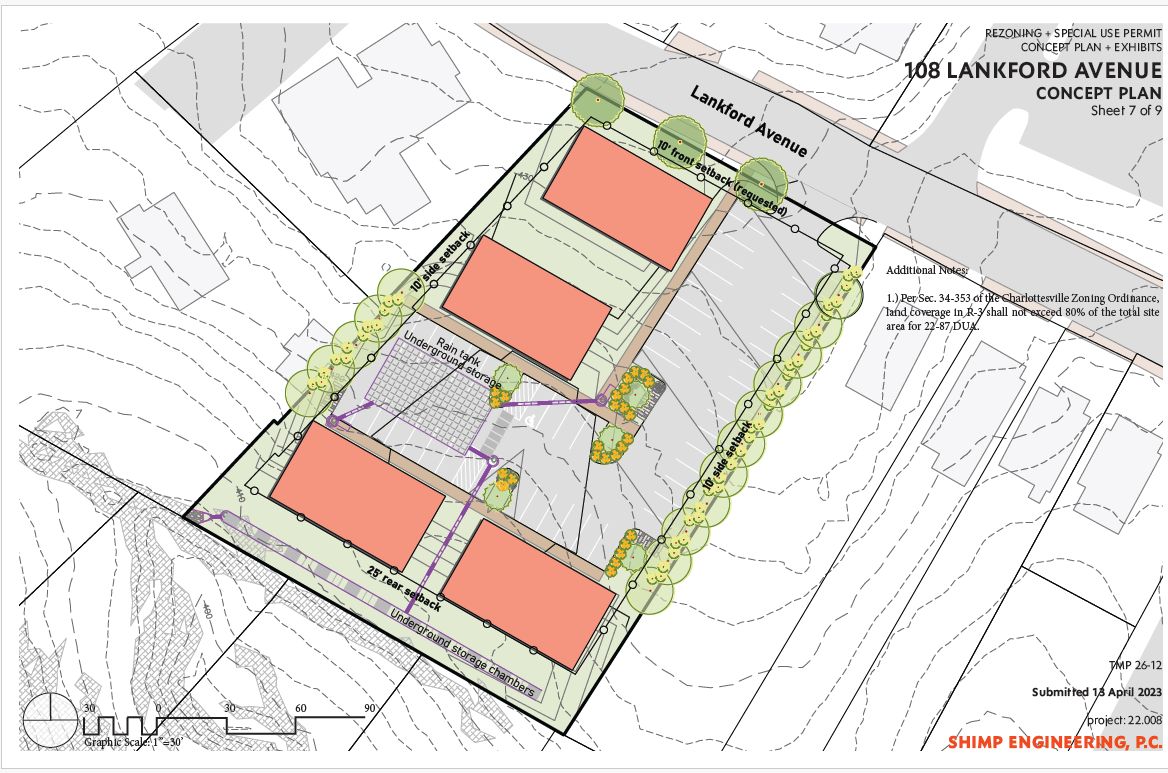One of the major ideas driving reform of land-use approvals in Charlottesville is the notion that developers will construct much more housing if City Council and the Planning Commission are not involved in deciding what gets built and where.
“Height restrictions effectively require all multifamily projects to obtain special use permits to make development feasible,” reads the Affordable Housing Plan adopted by City Council in March 2021. “Beyond this, the development processes are cumbersome, and significantly increase the time and cost to develop new housing.”
Yet the draft version of the Development Code that council will consider at its December 5 public hearing contains elements that will keep appointed and elected officials more involved than had originally been envisioned.
Since the Planning Commission’s public hearing on September 14, two new zoning districts have been created including one where a “special exception permit” would be required for additional height.
The exact boundaries for these have not yet been finalized, but the Neighborhood Core Overlay District will cover portions of Cherry Avenue and Preston Avenue. Developers will need to demonstrate they’ll provide some community benefit, in addition to providing more affordable units than otherwise required. This was added after concern was shown about the third phase of a large city complex.
“What’s being proposed for the corridors is responsive to the concerns that were brought to us about the Dairy Market project when we had all of the people showing up at our Planning Commission meeting back in August,” said City Councilor Brian Pinkston at a recent work session.
On November 1, council directed staff to require a special exception to exceed more than five stories in the commercial corridor districts. There’s no map yet for how extensive these may be due to notice requirements for council’s public hearing.
City Councilor Michael Payne was worried about what a lack of a permit might do to existing businesses.
The new rules will still give the ability for property owners to change zoning districts through an amendment to the zoning map. At least one developer has signaled it will seek more density on land designated as Residential-A.
Last week, the Charlottesville Planning Commission granted more time for a rezoning application that’s making its way through the existing system. A company called Green Retro Salvage II Holdings wants to upzone three properties currently designated for single-family use to multifamily. That would allow for as many as 44 units on 0.95 acres of land.
That level of density would not be allowed under the future Development Code, which designates the land as Residential-A. That would allow between nine and 16 market-rate units assuming each lot would remain independent.
Staff has not yet made a decision on when existing applications under the existing rules must be approved, but there will be a provision for developers to seek a rezoning to a different district.
“If it comes down to it and the ordinance is passed and it said ‘we’re cutting it off on this day and you’re not approved’ I think we would simply amend this to like an R-X,” says Justin Shimp, the project’s civil engineer. “My entire career now, I’ve essentially fought against density restrictions everywhere I go.”
City Council will hold one last work session on the Development Code on November 29.
